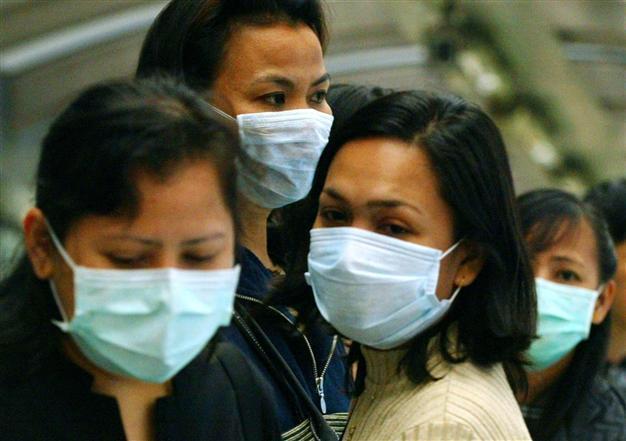Qatari man suffering SARS-like mystery illness: WHO
LONDON - Agence France-Presse

Hürriyet Photo
A Qatari man is critically ill in a London hospital after contracting an infection similar to the deadly SARS virus, the World Health Organisation said today.Another person had died from a similar virus in Saudi Arabia in recent months, WHO spokesman Gregory Hartl said, adding however that for the moment it was impossible to link the two cases.
In Riyadh, the health ministry reported a total of three cases of people diagnosed with the virus in Saudi Arabia, of which two patients had died in the kingdom.
Hartl said that the 49-year-old Qatari patient, whose name was not given, was suffering from acute respiratory infection and kidney failure.
"The Qatari man was at a hospital in Qatar and medevacked to Britain where he was taken to an intensive care unit at a specialised hospital," the WHO spokesman told AFP.
The health organisation confirmed the illness was in the coronavirus family but was not SARS, a virus that emerged in 2002 and eventually killed 800 people.
"This is a new virus," Hartl said.
"It's something that not many people recognise so they had to take it to a specialised lab and ask, 'Does someone recognise this gene type?' and this can't be done overnight." Coronaviruses are causes of the common cold but can also include more severe illnesses including SARS.
"We haven't heard of any more new cases. We don't have an appreciation of how widespread the virus is," Hartl said.
"This is one reason why we're trying to get more information. We don't know how it's transmitted," he added.
The Saudi health ministry said in a statement carried by the official SPA news agency on Sunday that "three people were diagnosed to have been infected by this virus".
Two Saudis had died from the illness in the kingdom, while a third Gulf national was receiving treatment in Britain, SPA reported, referring to the Qatari patient.
The ministry said it would continue to "follow developments" linked to the disease "in coordination with international health organisations," adding that "these are rare cases and the situation is reassuring".
The announcement comes ahead of next month's annual Muslim hajj pilgrimage to Saudi Arabia's holy city of Mecca which will attract nearly three million believers.
Britain's Health Protection Agency, an organisation set up by the government to manage infectious diseases, meanwhile, stressed no-one else in Britain, including those who had come into contact with the man, were reporting symptoms.
The HPA said the new virus was "different from any that have previously been identified in humans.
"Preliminary enquiries have revealed no evidence of illness in contacts of these two cases, including health care workers," he added.
"Based on what we know about other coronaviruses, many of these contacts will already have passed the period when they could have caught the virus from the infected person." Professor John Watson, head of the respiratory diseases at the HPA, said: "Immediate steps have been taken to ensure that people who have been in contact with the UK case have not been infected, and there is no evidence to suggest they have. "As we are aware of only two cases worldwide and there is no evidence of ongoing transmission.
"At present there is no specific action for the public or returning travellers to take but we will share any further advice with the public as soon as more information becomes available," he added.
The HPA said they were investigating the case of a third person who was treated for a respiratory illness in Britain in recent months but had since died.
That case was one of a "small number of other cases of serious respiratory illness in the Middle East in the past three months," it said.
"This person's illness is also being investigated although there is no evidence at present to suggest that it is caused by the same virus or linked to the other two cases. No other confirmed cases have been identified to date in the UK," it said.
Professor Peter Openshaw, director of the Centre for Respiratory Infection at Imperial College London, urged caution, saying any evidence of human-to-human transmission causing severe disease "would be very worrying".
SARS (Severe Acute Respiratory Disease), which mainly affected Asia, was recognised at the end of February 2003.
















